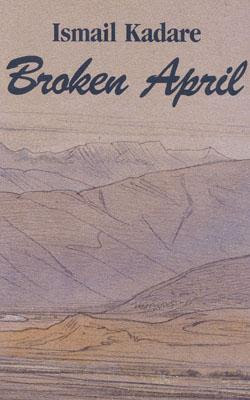“It’s very well written, which helps, but the underlying idea is even more fascinating. The setting is Kadare’s native Albania, where the hill-dwelling people have this mad system of honor and code of behavior called the ‘Kanun’”.
The story is simple. The central character, 26-year-old Gjorg Berisha, is returning to his country village in Albania. He is forced, through the 'Kanun" code, to murder someone in another family in revenge for a previous killing in his own family. The results of his actions, which come as a surprise, place him inside of the very code he wishes he could break out of.
 |
| Ismail Kadare |
Kadare’s theme of how the past influences the present, is so beautifully wound into the story, that you find yourself wondering about your own life; your own family traditions. Blind belief, honor, codes of conduct without compassion, these are the things that make up Broken April. That and compelling characters who the author manages to create empathy for even as they are committing acts of evil.
“A pale young man sits down to an important meal. His brother has been murdered and he waits for a discussion about blood compensation to be over. If it fails, his life will be forfeit, gathered into the cycle of bloodshed as soon as he avenges (as he must) his brother. The provisions of the meal are complicated: eaten at noon with the murderer, it must conclude with the agreement of a blood price and a tour of the house, the male guests stamping their feet in every room to drive out the fued’s shadow. Then the young man’s father carves a cross on the murderer’s door and exchange a final reconciling drop of blood. The price is settled, and the stamping begins”.
>This is a writer with a profound sense of the past/present and a very deep understanding of human psychology. Although the word is over-used, I think Broken April is a masterpiece that belongs alongside Kafka and Tolstoy and other writers who look sadly upon humanity at its worst in order to free us all to become our best.
I urge you to find a copy of Broken April by Ismail Kadare, or any other works by this remarkable Albanian author.
- Full bibliography
My thanks to Goodreads.com for the cover picture of Broken April.
